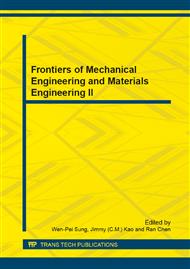p.1216
p.1220
p.1224
p.1228
p.1232
p.1236
p.1241
p.1245
p.1249
Research of Flatting of Image Data of Human Movement
Abstract:
In order to insure the reliability of the biomechanics image analysis, the original image data should be in mathematical process, in which the noise data can be maximally removed while the real valid information can be reserved. This is the so called data smoothing. In recent years, few scholars conducted deep comparative studies in this area. Therefore, the present study tackles this rare issue, and fills in the gap of deep comparative studies involving different smoothing methods. This paper aims to test and compare these two different methods in their ability to process human movement images. The result is readied by applying theoretical analysis and conducting experiments. The present study relies on various mathematics principles of interpolation and filter methods, the comparison between the merits and demerits, range of applications and effects of different interpolation and filter combinations. The present study then adopts experimental method to validate the hypothesis and reach our conclusion. We obtain the conclusion that it is better to use low-pass filtering to remove the high-frequency noise data, a method which is used by most scholars. However, the data of IIR is closer to the original value and has a better effect, when processing smoothly change data. Henceforth, new process method from other areas can be tentatively introduced to improve the precision of data processing, such as wavelet analysis method, integrated use of multistage filtering analysis and so on.
Info:
Periodical:
Pages:
1232-1235
Citation:
Online since:
October 2013
Authors:
Keywords:
Price:
Сopyright:
© 2014 Trans Tech Publications Ltd. All Rights Reserved
Share:
Citation:


